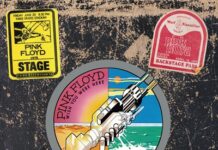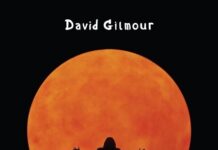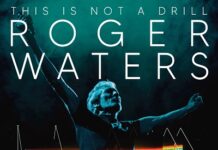When the Beatles broke up in 1970, it was both a blessing and a curse for John Lennon. Oh, he made it out to be the most liberating moment of his life. And with Yoko Ono by his side, he certainly wasn’t going to let the demise of the Beatles get in the way of a bigger and brighter agenda. Unlike the celebutantes scowling at TMZ, John and Yoko welcomed the crush of the mass media, using it as vehicle for spreading a message of peace. But with the Beatles legacy constantly in his rearview mirror, Lennon had demons of his own he needed to confront. He did it the only way he knew how — through music. On Plastic Ono Band, his first proper solo album, John Lennon held nothing back.
Now, a new Classic Albums DVD zeroes in on the aura surrounding John Lennon’s visceral masterpiece, an album of brutal simplicity dripping with open-wounded emotion, pain and love. As with other Classic Album titles, all the available key players have their say, including Yoko Ono, drummer Ringo Starr, bassist Klaus Voormann, renowned Beatles historian and author Mark Lewisohn, and all three of the album’s engineers, Phil McDonald, Richard Lush and John Lickie. Interspersed with sound bytes from Lennon, the story of the album’s making includes snippets of unseen footage along with the unearthing of those rare and indelible tidbits Beatle fans salivate over.
The DVD begins by tracing the record’s unique origins, starting with “Cold Turkey” and “Instant Karma,” quick and easy singles, the “prototypes” for what would comprise Plastic Ono Band. Shaped by a broken family, the velocity of fame and a nasty heroin habit, Lennon went through primal therapy treatment with Dr. Arthur Janov to release years of repressed pain — just before stepping into the studio. Much of this comes through on the record. Nowhere more apparent than on “Mother” where the singer unloads a truckload of blood curdling screams to express the grief over his late mother. And that’s just the opening number.
For the album’s actual recording, the lack of Phil Spector’s participation is noted as the three engineers spin and pull out tracks, and Starr, Voorman, and Ono reminisce about their respective roles. The double-track vocals on “Isolation” give way to the controversy of “Working Class Hero” and “God,” both of which Lennon himself comments on. Pay close attention to the dual piano work on “God,” as Lush isolates Lennon’s part from Billy Preston’s. Yeah, this is the kind of stuff recording geeks gush over. So do I.
Thankfully, there’s plenty more in the Bonus section. The missing chapters on “Remember, Remember” (with its hidden jaw harp) and “Well, Well, Well” fill in some gaps. Chapters focusing on Voorman and Ono spice up the story even more. And though a live version of “Mother” from Lennon’s 1972 One-To-One concert at Madison Square Garden and the performance of “Instant Karma” on Top Of The Pops, help round out the line-up, they could as well been left off. Either way, the Classic Album series offers an insightful perspective on one of rock’s most arresting works. John Lennon and Beatle fans will surely want to add this one to their collections.
~ Shawn Perry




















